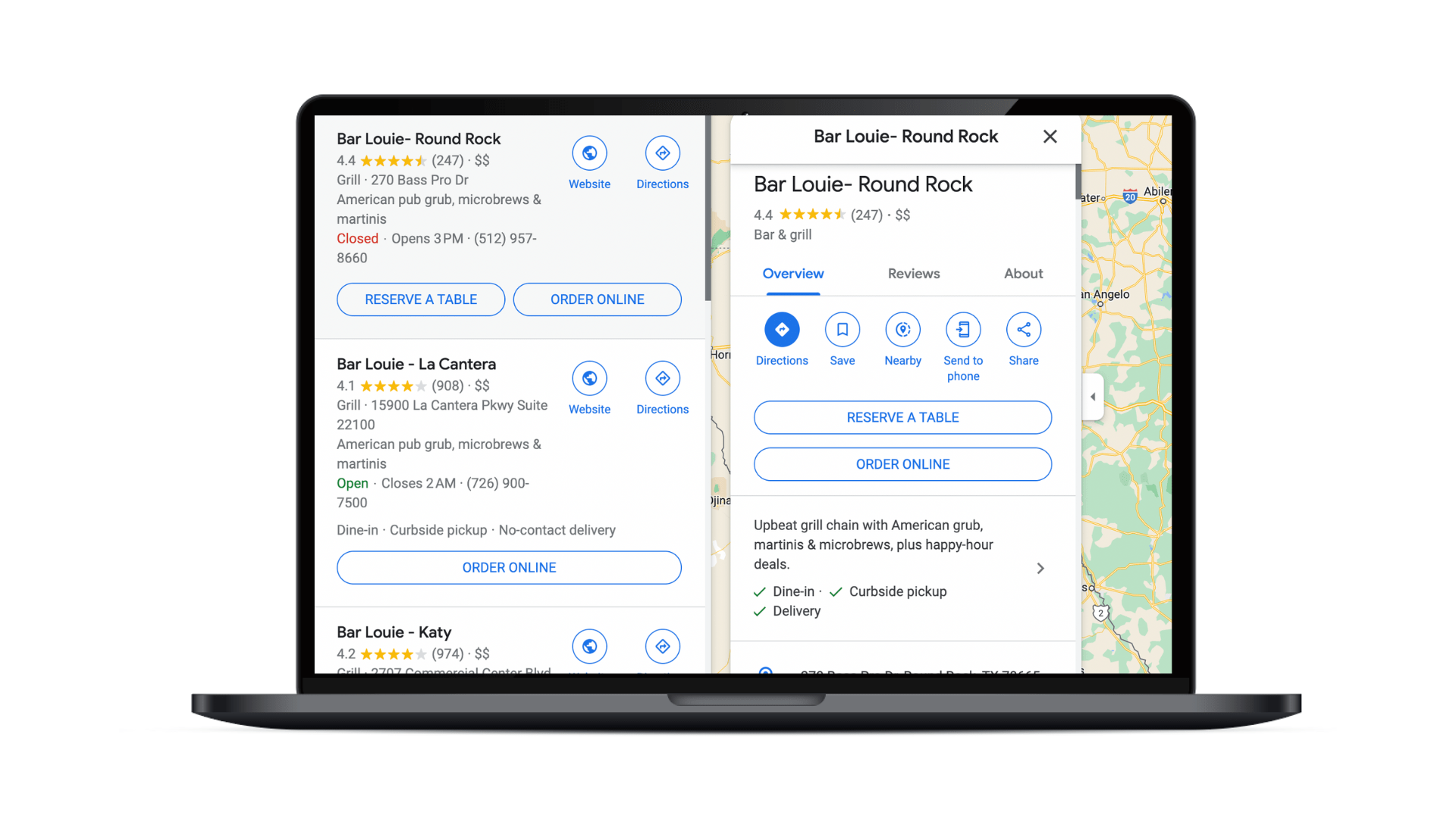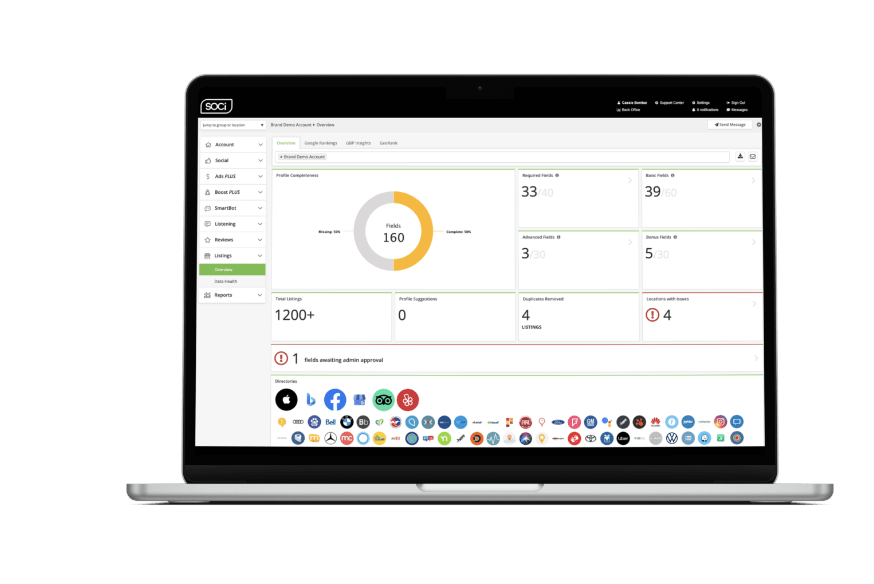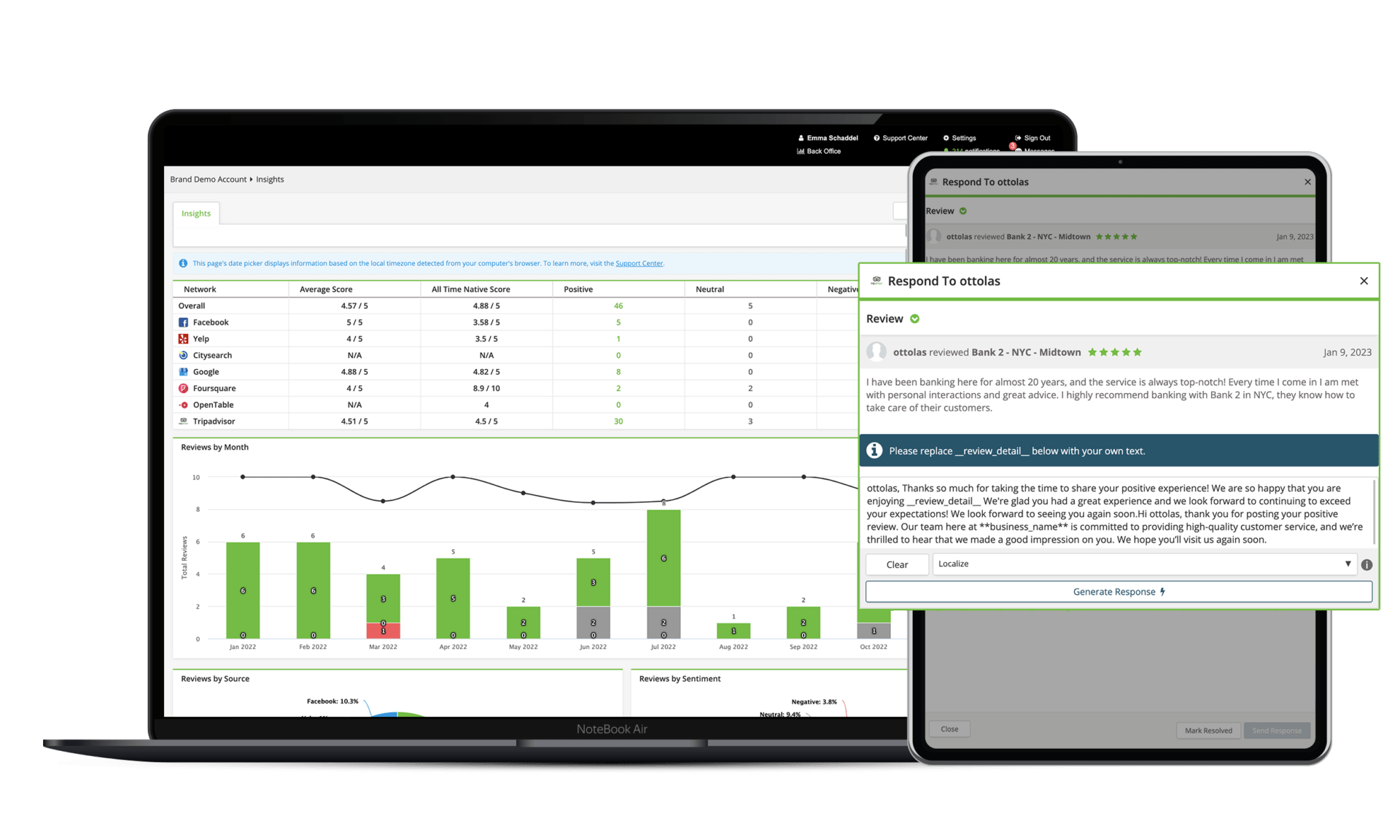Navigating the Future of the Client Experience in Financial Services
Reputation Management X Local Listings — A Restaurant Brand’s Recipe for Success

Reputation Management X Local Listings — A Restaurant Brand's Recipe for Success
As a restaurant brand, you likely understand the importance of a solid reputation management strategy. In general, businesses with higher star ratings are more likely to be chosen by consumers over the competition. We found that conversion on Google Business Profiles (GBPs) improves by 44 percent when a business increases its average star rating by one full star. While reputation management may be on your radar, what about your local listings? The two are intertwined. Customers are 70 percent more likely to visit and 50 percent more likely to consider purchasing from businesses with a complete GBP. Updated and accurate local listings for each restaurant location are a must. We understand that restaurant brands find it challenging to manage their online reputation and local listings at scale. This blog is here to help! We’ll break down what reputation management of your local listings entail for restaurant brands, how to optimize listings effectively, and provide a solution to help you manage them at scale. Let’s get started!An Intro to Reputation Management and Local Listings
As you would expect, reputation management is the process of managing a consumer’s perception of your restaurant brand. As a restaurant with multiple locations, the perception of your restaurant can vary by location. Understanding and managing your restaurant’s reputation across each location is critical. If you’re unfamiliar, a local listing is today’s digital version of a Yellow Pages listing. It’s when an online directory, like Google or Yelp, mentions your local business. These local listings often include basic business information, such as your local restaurant’s name, address, phone number, and a link to your website. Having a handle on both your restaurant brand’s online reputation and local listings is essential.How to Master Your Reputation Management Efforts
Now that you better understand what reputation management means for your restaurant brand, let’s dive into how to manage it effectively across all your locations. Below, we’ll cover three ways your restaurant brand can improve its reputation management strategy.Monitor and Respond to Reviews
One of the most important aspects of reputation management is monitoring and responding to reviews. Research has found that consumers tend to read ten reviews before deciding on a business. Of those who read reviews, 97 percent said they pay attention to the responses business owners and operators write. Similarly, 40 percent of consumers expect a response no more than 24 hours after posting a negative review. Paying attention to when consumers leave reviews and responding promptly and personally is essential. Download our Online Reputation Management Guide for Restaurant Brands for additional tips on managing and responding to reviews.Collect Additional Reviews
While monitoring and responding to reviews your restaurant brand receives organically is essential, gathering new reviews can help your reputation management efforts. Our State of Google Reviews Research Report found that for every ten new reviews earned, the conversion of Google profiles improves by 2.8 percent. Your restaurant brand can gain more reviews by:- Adding a call-to-action (CTA) on both paper and digital receipts for diners to review their experience
- Utilizing social media to encourage feedback from loyal customers
- Engaging with current reviews to show diners you value their feedback
- Making your reviews easily accessible through links on your website, social channels, and beyond
- Leveraging surveys and chatbots as a tool for review collection
Assess Feedback and Make Optimizations
Lastly, your restaurant brand needs to make changes based on the feedback you’ve collected from your ratings and reviews. For instance, if you notice a few reviews expressing disappointment in the service they experienced, how will you change that? If customers mention the lack of space while waiting for a table, can you do anything to improve this? As you begin to make changes based on feedback that you’ve heard from customers, you can relay that information on your social channels, review responses, and local pages. Ensuring that customers know you’re paying attention to their feedback is vital.Set Your Local Listings Strategy Up for Success
As mentioned, local listings are another critical component of a successful localized marketing strategy. If your restaurant brand is just starting, the first step is to claim and optimize your local listings across all major directories. With 8.5 billion searches daily, having your local listings on Google is non-negotiable. Below is an example of a Bar Louie local listing on Google.
Start Dominating Your Localized Marketing Strategy
As you can see, reputation management and local listings go hand in hand. Ensuring your restaurant brand has a strong strategy is essential, but finding a solution that enables you to manage both at scale is critical. That’s where SOCi comes in. SOCi has helped restaurants like Bar Louie, Marco’s Pizza, and even sandwich chain Jersey Mike’s Subs achieve localized marketing success. SOCi is the marketing platform for multi-location brands and has the tools your restaurant brand needs to effectively manage its online reputation, local listings, and more. SOCi Listings empowers restaurant brands to manage their business listings at scale and optimize their online presence and local search rankings. SOCi Listings has coverage across all the top search directories and networks while also including actionable insights such as map-based keyword reporting and competitor rankings.











